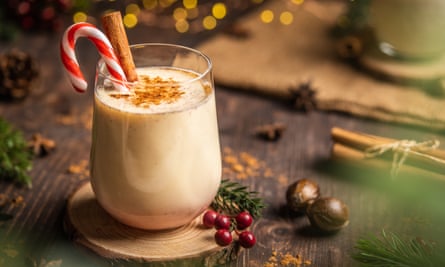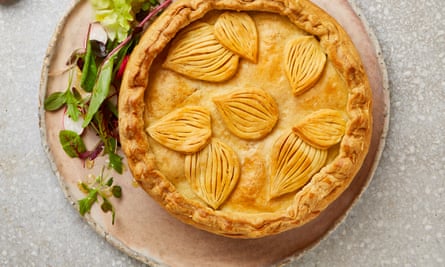
The festive table is set. Family has gathered. In the kitchen, the finishing touches are being placed on the traditional feast that marks the occasion of Christmas. A beaming cook carries out the signature turkey, the centrepiece of the meal. Is now a good time to mention that I’ve recently committed to veganism?
The clock is ticking, and I still haven’t given firm direction to my wonderful in-laws about my new dietary requirements. I’ve been vegetarian the entire time I’ve known them, and they always go out of their way to accommodate me. But it was easier when I could tuck into the cauliflower cheese, enjoy the buttery potatoes, and fill up with pavlova afterwards.
As much as I am enjoying my 95% vegan lifestyle (my mother also struggles, so I concede to her Indian inability to eschew ghee when she cooks for me), I don’t want to cause any stress for the chef. And equally don’t want to have to explain or justify my choices.
After chewing over this conundrum for weeks, and remaining indecisive, I decided it was time to call the experts.
The fellow vegan
Most vegans I know do somewhat match the stereotype of being militant in their views. I’m an outlier in making concessions to benefit my family or friends (though I’ll admit it’s not a huge sacrifice to eat Mum’s ghee-soaked curries).
So I was a little nervous asking Kate Luke, co-founder of Little Oak Sanctuary, a farm animal sanctuary and vegan advocacy organisation, whether Christmas is a good time to talk about veganism.
Luke didn’t pull any punches about the plight of animals on the Christmas table.
“Traditionally, pigs and turkeys are highlighted on the Christmas menu, and both of those animals are really very badly treated in modern farming. There’s a lot of hidden cruelty people might not know about. We use Christmas as an advocacy opportunity, by showing people the issues and promoting alternative vegan options.”
It doesn’t all have to be an argument either, Luke points out. “When we become vegan, we’ve had time to process it,” she says – our families, meanwhile, only hear about the decision, not how we got there so “there’s no time for them to adjust”.
She recommends sticking to my commitment to veganism, but coming at it from the perspective of educating others and avoiding any arguments at the table.
It’s good idea to avoid using language that places blame: “you’re eating an animal that suffered.” Instead, I’ll be focusing on the positives: “did you know that you can make vegan eggnog using coconut milk? This way I can support layer-hen welfare, and still enjoy my favourite festive drink!”
Top it off by presenting the jug of vegan eggnog you’ve made for the occasion, and you’re guaranteed a good time.
The ethicist
Veganism for animal welfare reasons is an ethical standpoint, so it makes sense to call Dr Tim Dean, from Ethi-Call, a free ethics helpline that provides guidance to people facing this sort of conundrum.
While I was focused on whether eating vegetarian for Christmas makes me a bad vegan (objectively, I think the answer is probably yes), Dean pointed out that there are ethical obligations on all sides of the table.
“Another ethical dimension about this is what responsibilities do your extended family have in terms of acknowledging your ethical stance and your ethical views?”
I hadn’t even considered that side of the issue. Dean explained how using the philosophical framework of deontology could be useful. Deontology focuses ethics around a series of rules that provide an overarching guide for our decision-making. Immanuel Kant, an early philosopher who adopted this approach, had an absolutist attitude, but Dean says there’s a middle ground.
“In your situation, you might say, ‘I have a duty to never engage in an activity that will be harmful towards animals, and that should override other concerns.’ That doesn’t mean you ignore those other concerns, but you might try to then minimise the negative impacts. You might contribute to the preparations, bring your own meal, or similar. So that’s the way you might balance two different kinds of ethical considerations.”
The cook
Ethics and animal welfare to one side, the chief thing I’m trying to avoid is making anyone feel awkward or stressed. Since I’m not hosting, I needed an entertainer’s perspective.
I called Julia Busuttil Nishimura, hosting extraordinaire, to ask what she would want her guests to do. Turns out, it’s more excruciating to find out a guest ate something they didn’t want to than it is to cater for a vegan.

“Christmas is more about getting together than it is about the food. As a host, there is nothing that I want to do that is gonna make someone feel uncomfortable and like they don’t feel welcome.”
The key is telling the host well in advance so they can prepare for everyone’s needs. Busuttil Nishimura says that, with a bit of time to plan ahead, having vegan options available at the Christmas table really isn’t that hard. “It’s all about having a bit of empathy … and being flexible as well in maybe bringing some dishes with you.”
The verdict
It’s pretty clear – I should tell my family ASAP, and also come equipped with some vegan dishes to contribute, especially as I’ve dropped on giving notice.
Even with all that preparation, Dean had a final word of warning for me: my dietary habits could still cause conflict. That’s because they raise ethical questions for others.
“The unsettling dimension of veganism for those who are not is that a vegan is visibly eating a different meal in front of you, expressing a different ethical view, that not only is a point of difference, but it is in contrast and contradiction to those who are not vegan.”
”That makes non-vegans reflect upon their own ethical views and wonder whether they are somehow ethically wrong. And that can trigger things like a defensiveness.”
I may need to prepare for some robust conversations over the Tofu-rkey, it seems. But hopefully a peace offering of aquafaba pavlova will help keep things sweet.



